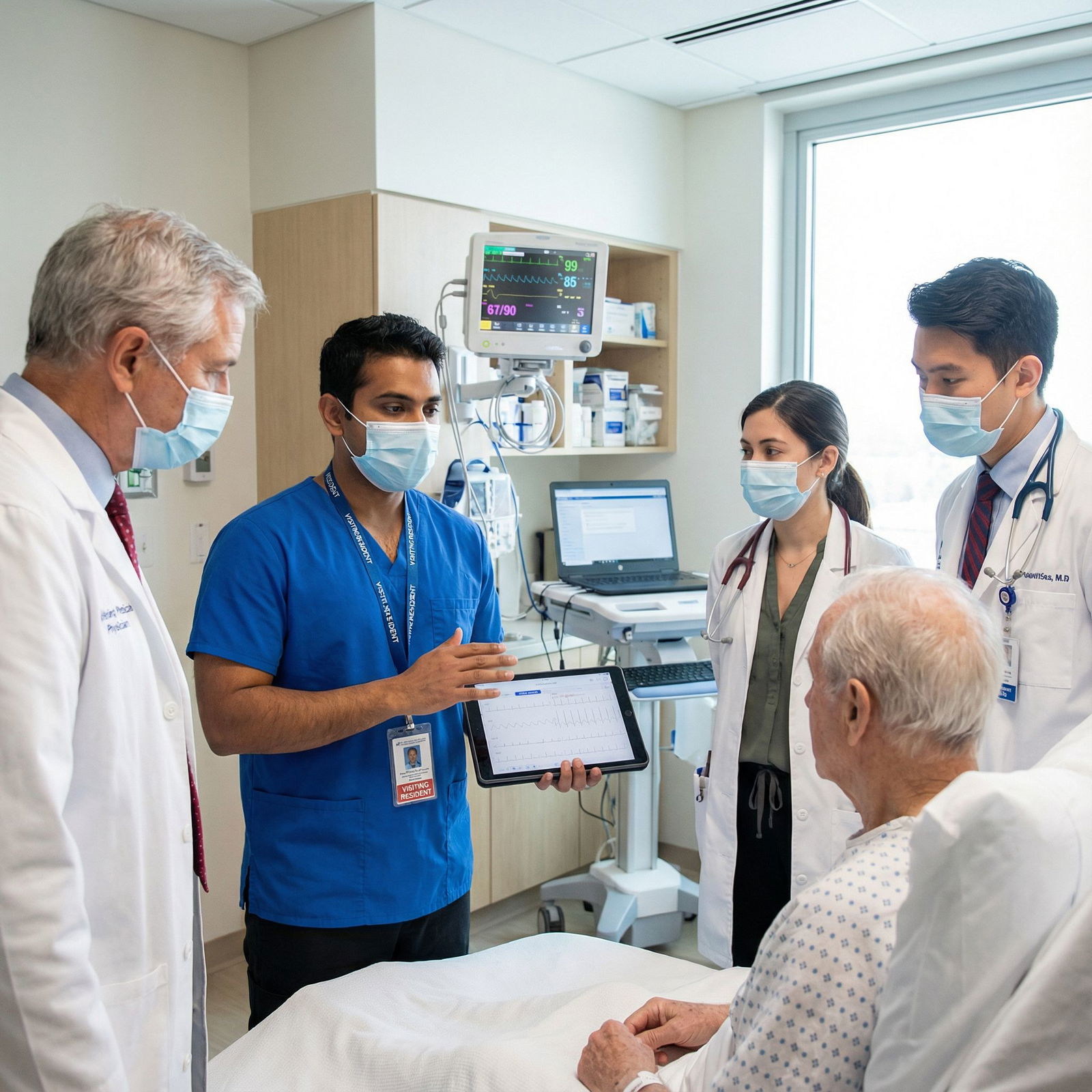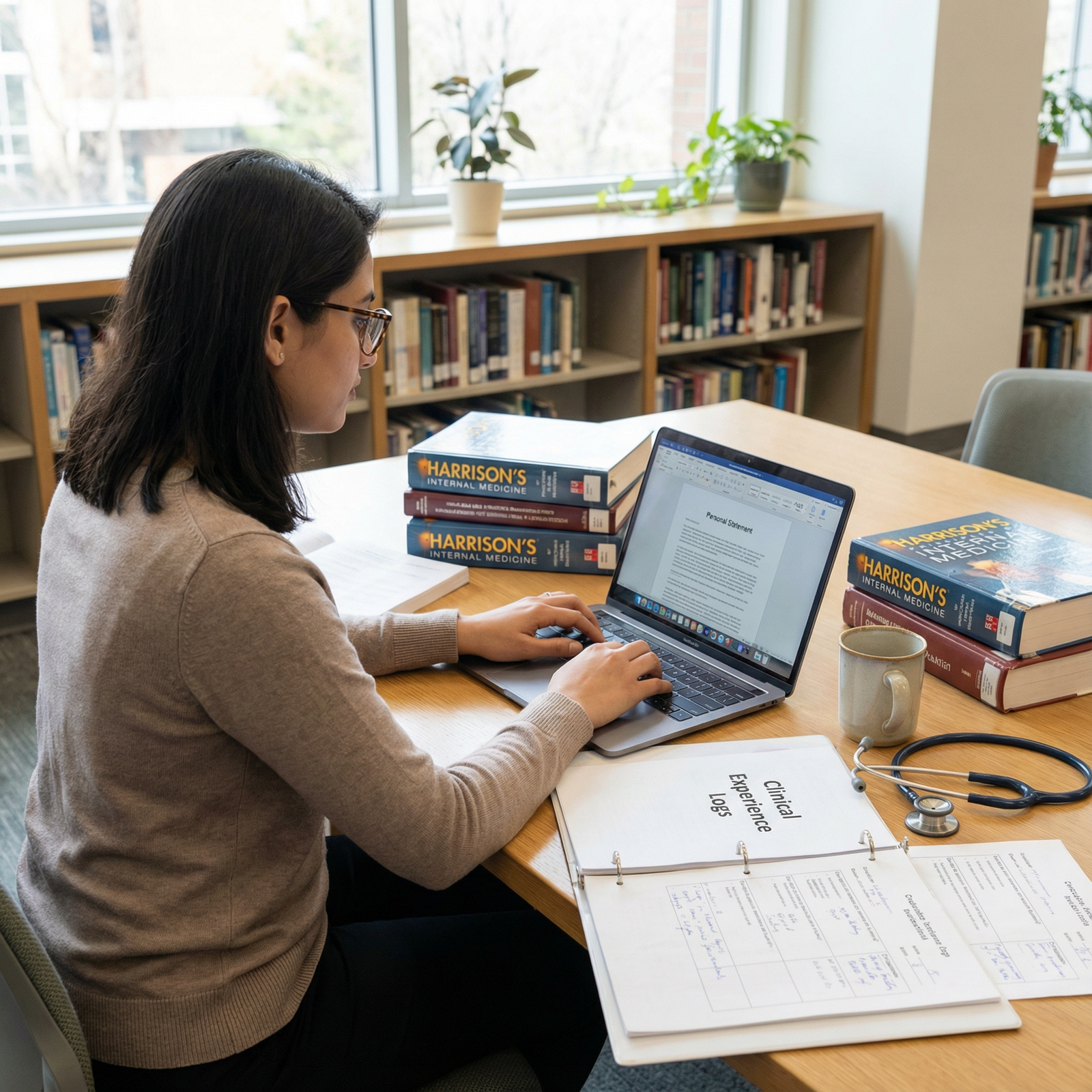
Strategic Steps for IMGs: How to Maximize Clinical Experience for Residency Success
Embarking on a medical career in the United States as an International Medical Graduate (IMG) is both exciting and demanding. Among all components of your profile—USMLE scores, research, and letters—few are as influential as meaningful, recent clinical experience in the U.S. healthcare system.
For many IMGs, this clinical exposure is the bridge between being a qualified physician on paper and being a competitive candidate for U.S. residency applications. Done well, it showcases your readiness for patient care, your adaptability, and your commitment to practicing medicine in the U.S.
This guide walks through strategic, practical steps to not only obtain clinical experience but to optimize every rotation, observership, and externship so that it directly strengthens your residency applications and long‑term healthcare career.
Why Clinical Experience Is Critical for International Medical Graduates
1. Demonstrates Clinical Competence and Readiness
Residency programs need evidence that you can function safely and effectively in a real clinical environment—not only that you passed exams.
Strong clinical experience:
- Shows you can apply medical knowledge at the bedside, not just in multiple-choice settings.
- Demonstrates familiarity with common inpatient and outpatient workflows.
- Provides concrete examples for letters of recommendation (LORs) that speak to your clinical judgment, professionalism, and work ethic.
Programs often distinguish between:
- Hands-on U.S. clinical experience (USCE): Externships, sub-internships, or rotations where you participate directly in patient care under supervision.
- Non–hands-on experience: Observerships or research roles where you do not touch patients or write orders.
Hands-on experiences generally carry more weight, especially in primary care and internal medicine programs, but all types can be valuable if used strategically.
2. Strengthens Communication and Teamwork Skills
Effective communication is a core competency in U.S. training. Clinical experience gives you the chance to:
- Practice patient-centered communication in English, including explaining diagnoses, discussing treatment plans, and obtaining consent.
- Learn how multidisciplinary teams function—attendings, residents, nurses, pharmacists, case managers, social workers—and how to communicate efficiently with each group.
- Practice concise and structured presentations (e.g., SOAP format) that are crucial during rounds and residency interviews.
If English is your second language, sustained clinical exposure helps refine:
- Accent clarity and pacing.
- Medical terminology in real contexts.
- Strategies to navigate difficult conversations (e.g., breaking bad news, addressing non-adherence).
3. Builds Professional Networks and Medical Mentorship
High-quality medical networking is one of the most undervalued benefits of clinical experiences for IMGs.
Your rotations can help you:
- Identify attendings who may become mentors, research collaborators, or strong LOR writers.
- Meet residents who can offer practical advice on programs, interviews, and life as an IMG in training.
- Connect with hospital staff and administrators who may know of additional clinical or research opportunities.
Over time, these connections can:
- Lead to additional clinical rotations, observerships, or research positions.
- Strengthen your applications through personalized, detailed letters that speak to your growth and performance.
- Provide insider perspectives on programs, helping you build a realistic and targeted application list.
4. Develop Cultural Competence and Patient-Centered Care
Practicing medicine in a new country means adapting to different patient expectations, social determinants of health, and cultural norms.
Through clinical experience, IMGs can:
- Learn how cultural, linguistic, and socioeconomic factors shape health beliefs and behaviors.
- Recognize U.S.-specific contexts such as insurance limitations, access to care issues, and health literacy barriers.
- Practice shared decision-making and respecting patient autonomy within the framework of U.S. ethics and law.
These skills not only improve patient care—but also give you rich stories to share in your personal statement and interviews, highlighting your growth as a culturally competent physician.
5. Gain Familiarity with the U.S. Healthcare System and EHRs
Residency directors want to know that you understand:
- How U.S. hospitals and clinics function day to day.
- Basics of insurance systems, prior authorizations, and outpatient follow-up.
- Use of electronic health records (EHRs) for documentation, order entry, and communication.
Clinical experience is the most efficient way to:
- Learn common documentation patterns (e.g., admission notes, progress notes, discharge summaries).
- Understand quality metrics, safety protocols, and institutional policies.
- Appreciate the realities of U.S. medicine: time pressures, documentation burden, and team-based care.
Collectively, this reassures programs that you can hit the ground running on July 1.

Finding and Choosing the Right Clinical Opportunities
1. Effective Strategies to Identify Clinical Experience
a. Leverage Professional Organizations and IMG-Focused Groups
Consider joining:
- American Medical Association (AMA) – Offers IMG sections and resources on U.S. healthcare careers and clinical opportunities.
- Educational Commission for Foreign Medical Graduates (ECFMG) – Provides guidance on certification and sometimes links to clinical programs.
- Specialty societies (e.g., American College of Physicians, American Academy of Family Physicians) – Often have student/trainee memberships and local chapters.
These organizations may offer:
- Lists or databases of observerships and externships.
- Networking events where attendings mention openings.
- Mentoring programs that connect you directly with U.S. physicians.
b. Attend Conferences, Workshops, and Local Meetups
Use conferences strategically:
- Approach speakers whose work interests you and ask if they know of clinical experiences for IMGs.
- Join poster sessions and mingle with residents and faculty.
- Follow up via email with a brief CV and a concise, professional request.
Even local CME events and hospital grand rounds can open doors to observerships or rotations.
c. Direct Outreach to Hospitals and Private Practices
Not all opportunities are advertised. Targeted, polite outreach can be effective:
- Identify community hospitals, teaching hospitals, and academic centers.
- Look for departments that historically accept IMGs.
- Email physicians or program coordinators with:
- A concise introduction (who you are, your training level).
- Your goals (e.g., gaining internal medicine experience in a U.S. setting).
- A one-page CV.
- Availability dates.
Be prepared for many non-responses; persistence and professionalism are key.
2. Understanding Types of Clinical Experience: Observerships, Externships, Rotations, and Volunteering
a. Observerships
- Typically non–hands-on; you shadow physicians and observe clinical care.
- Useful to:
- Learn documentation styles.
- Understand workflow and U.S. medical culture.
- Gain exposure when hands-on roles are unavailable.
Maximize impact by:
- Taking structured notes about cases and management decisions.
- Asking thoughtful clinical questions at appropriate times.
- Requesting feedback on your presentations or case discussions.
b. Externships and Sub-Internships
- Often hands-on, allowing supervised participation in:
- History-taking and physical exams.
- Note writing and case presentations.
- Interdisciplinary discussions (rounds, sign-out).
- Especially valuable if completed in your target specialty (e.g., internal medicine, pediatrics, psychiatry).
These are among the strongest forms of clinical experience for residency applications, especially if recent and completed at academic institutions or teaching hospitals.
c. Formal Clinical Rotations (Through Medical Schools)
If you are still in medical school or a very recent graduate, you may be able to:
- Arrange visiting student electives at U.S. medical schools.
- Participate in fourth-year rotations that function like audition rotations.
These experiences can lead to:
- Strong U.S. LORs.
- Program directors remembering you during rank time.
- Deeper understanding of academic expectations.
d. Volunteer Roles in Clinical Environments
While not always considered formal USCE, clinical volunteering can complement observerships/externships by:
- Showing sustained commitment to patient care and the community.
- Enhancing your understanding of social determinants of health.
- Providing additional stories for your personal statement and interviews.
Examples include free clinics, refugee health programs, or community health fairs.
Tailoring Clinical Experience to Your Specialty and Career Goals
1. Align Experiences with Your Target Specialty
Programs notice when your clinical history tells a coherent story.
For instance:
- If you are applying to Internal Medicine, prioritize inpatient and outpatient IM rotations, cardiology or endocrine clinics, and general medicine wards.
- For Family Medicine, seek experiences in community clinics, preventive care, and continuity clinics.
- For Pediatrics, target children’s hospitals, pediatric primary care, and subspecialty clinics.
Having 2–3 rotations clearly aligned with your specialty:
- Reinforces your commitment.
- Makes it easier for letter writers to comment on your specialty-specific abilities.
- Supports a clear narrative in your personal statement.
2. Strive for Diverse but Purposeful Settings
A well-rounded IMG profile often includes:
- Academic centers – Exposure to complex cases, teaching rounds, and research.
- Community hospitals – High patient volumes, practical experience, and close contact with attending physicians.
- Outpatient clinics – Continuity of care, chronic disease management, and preventive medicine.
- Possibly rural or underserved sites – Demonstrates flexibility, resilience, and interest in addressing care gaps.
When you describe these experiences in your application, emphasize how each setting contributed unique skills or insights to your healthcare career development.
3. Focus on Skill Development, Not Just Hours
Do not treat clinical experience as a checkbox. Think in terms of competencies:
- Clinical reasoning – Practice forming differential diagnoses and management plans, even if you cannot enter orders.
- Presentations – Regularly present patients in a structured format; ask for feedback on clarity and organization.
- Documentation style – Learn how to structure concise yet complete notes.
- Professionalism – Demonstrate reliability, punctuality, respect, and accountability.
Ask yourself every week:
- What new skill did I gain?
- What specific feedback did I receive?
- What example from this week could I share during a residency interview?
Building Relationships and Strong Letters of Recommendation
1. Intentional Medical Networking During Clinical Experiences
You are not just “doing hours”; you are building your future professional community.
Practical steps:
- Introduce yourself clearly to team members and explain your background and goals.
- Volunteer for responsibilities within your allowed scope (e.g., drafting notes, preparing brief topic reviews).
- Attend departmental or hospital events when possible (journal clubs, grand rounds, morbidity and mortality conferences).
Over time, this helps you:
- Be remembered as motivated and dependable.
- Gain access to informal mentoring and practical advice.
- Be recommended for additional roles or projects.
2. Finding and Nurturing Mentors
A mentor can dramatically ease your transition into U.S. medicine.
To develop mentorship:
- Identify supervisors who show interest in teaching and take the time to give you feedback.
- Schedule brief meetings near the end of your rotation to discuss:
- Your long-term goals.
- Your residency plans.
- Areas for improvement.
- Stay in touch via periodic, concise emails updating them on milestones (e.g., exam scores, interviews).
These relationships can lead to:
- Specific, detailed letters of recommendation.
- Career guidance beyond residency (fellowship, academic vs. community practice).
- Opportunities in quality improvement (QI) or research projects.
3. Practicing Effective Professional Communication
Strong communication can set you apart:
- With patients: Show empathy, avoid jargon, and check for understanding.
- With staff: Be polite, collaborative, and appreciative of their roles.
- With attendings: Ask focused, thoughtful questions; accept feedback graciously; avoid arguing or appearing defensive.
After each rotation:
- Send personalized thank-you notes to key faculty and staff who supported you.
- Ask, when appropriate, whether they feel comfortable writing you a strong letter of recommendation (important wording).
Staying Organized, Reflective, and Competitive
1. Systematically Document Your Clinical Experience
Create a structured log that includes:
- Institution name and location.
- Department/specialty.
- Dates and total duration.
- Type of experience (observership, externship, elective, volunteer).
- Supervising physician names and contact info.
- Key responsibilities and representative cases.
- Skills developed (e.g., “independently presented 4–6 patients on rounds daily”).
This documentation will make it easier to:
- Accurately complete your ERAS or other application forms.
- Prepare for interviews and recall specific cases.
- Provide organized information to letter writers.
2. Commit to Ongoing Medical Education
Clinical experience is powerful but even more impactful when paired with ongoing learning:
- Read about your patients’ conditions using reputable sources (UpToDate, guidelines, review articles).
- Take concise notes on management algorithms or diagnostic approaches.
- Join webinars or online courses relevant to your specialty.
Mentioning these efforts in interviews shows you are proactive and maintain a growth mindset.
3. Reflect Regularly and Turn Experience into Insight
Reflection turns routine days into powerful stories:
- After challenging cases, ask:
- What did I learn clinically?
- What did I learn about communication, ethics, or systems of care?
- Write brief reflections you can later adapt into:
- Personal statement content.
- Interview answers (e.g., dealing with a difficult patient, working in a team, handling a mistake).
Your goal is to transform day-to-day experiences into a coherent narrative of professional development.

Leveraging Clinical Experience in Residency Applications and Interviews
1. Crafting a Compelling Personal Statement Around Clinical Experience
Your clinical experiences should anchor your personal narrative:
- Start with a specific clinical moment that illustrates why you are passionate about your chosen specialty.
- Describe what you learned about:
- Patient care.
- The U.S. healthcare system.
- Yourself as a physician.
- Connect that experience to:
- Your long-term healthcare career goals.
- The kind of resident you aim to be.
Avoid generic statements. Use concrete examples:
- “During my internal medicine externship at X Hospital, I followed a patient with decompensated heart failure through admission, stabilization, and discharge planning, which taught me the importance of multidisciplinary communication and continuity of care.”
2. Strengthening Your CV with Specific, Quantified Details
When listing clinical experiences:
- Provide clear, concise descriptions:
- “Completed a 4-week, full-time internal medicine externship at a community teaching hospital; presented 3–5 patients daily; documented draft progress notes; participated in morning report and noon conferences.”
- Highlight achievements:
- Recognition or positive evaluations.
- Any mini-projects, case presentations, or teaching activities you carried out.
Specificity helps program directors quickly understand the depth and relevance of your experiences.
3. Using Clinical Experience Effectively in Interviews
Residency interviews will almost certainly include questions like:
- “Tell me about your U.S. clinical experience.”
- “Describe a challenging clinical case and how you handled it.”
- “How have you adapted to the U.S. healthcare system as an IMG?”
Prepare:
- 3–5 strong clinical stories illustrating different themes (teamwork, ethics, communication, resilience, learning from mistakes).
- Brief, structured responses that highlight:
- Context.
- Your role.
- Actions.
- Outcome or insight (the “CARO” or “STAR” approach).
Practicing aloud—ideally with mentors or peers—can help your answers sound confident and natural.
FAQ: Clinical Experience for International Medical Graduates
1. How much U.S. clinical experience do IMGs typically need for competitive residency applications?
There is no universal minimum, but many programs prefer at least 3–6 months of recent U.S. clinical experience, especially in your chosen specialty. More important than the exact number of weeks is the quality, recency, and relevance of the experience, as well as the strength of the letters of recommendation you obtain from it.
2. Is observership experience enough, or do I need hands-on clinical experience?
Observerships are better than having no U.S. experience at all, and they can be valuable for understanding the system and obtaining LORs. However, hands-on experiences (externships, electives, sub-internships) are generally more impactful because they allow you to demonstrate direct patient care skills. Aim for at least some hands-on exposure if possible, especially in internal medicine, family medicine, or pediatrics.
3. How recent should my clinical experience be for residency applications?
Most program directors prefer clinical experience within the last 1–3 years, with more recent being better. If you graduated several years ago, recent and continuous clinical or research involvement (in any country, preferably with some U.S. component) becomes even more important to show that your knowledge and skills are up to date.
4. How can I ask for a strong letter of recommendation from my clinical supervisor?
Toward the end of your rotation:
- Schedule a brief meeting with your supervisor.
- Ask for honest feedback first: “How have I performed, and what could I improve?”
- If feedback is positive, ask:
“Would you feel comfortable writing me a strong letter of recommendation for residency in [specialty]?” - Provide your CV, personal statement draft, and a short summary of your work during the rotation to make their job easier.
If they seem hesitant, it’s better to thank them and consider asking someone else.
5. What if I can’t secure U.S.-based clinical experience due to visas or financial constraints?
If U.S.-based experience is difficult:
- Seek clinical experience in your home country that is as structured and supervised as possible, ideally in teaching hospitals.
- Get involved in telemedicine observerships, virtual case discussions, or online clinical education programs hosted by U.S. institutions.
- Combine local clinical work with U.S.-linked research or quality improvement collaborations.
- Highlight how you have remained clinically active, committed to education, and adaptable, even without direct U.S. exposure.
Programs understand that access to U.S. experiences varies; your goal is to show continuous professional engagement and growth.
By intentionally choosing, structuring, and reflecting on your clinical experience, you can transform rotations and observerships into powerful assets for your residency applications. For International Medical Graduates, these experiences are more than requirements—they are the foundation of your new professional identity in the U.S. healthcare system and a critical stepping stone toward a successful, fulfilling healthcare career.



















